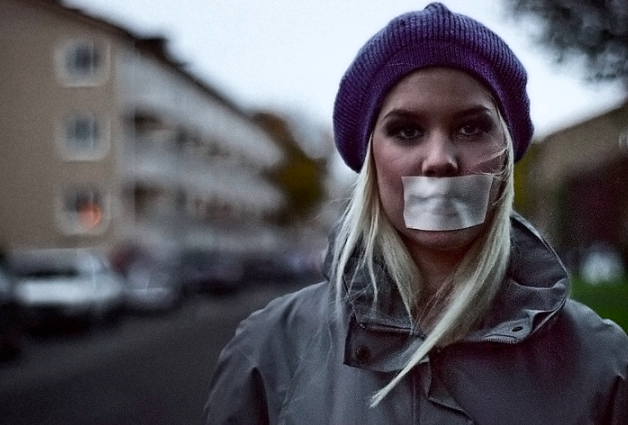As a kid, I had my share of permission notes.
They applied to any school absence due to illness, doctor’s appointments, or family emergencies. They always stated, “Please Excuse Sheryle…”
I learned, early on, through these innocent permission notes, to believe I was wrong and needed to apologize for being myself.
I learned to over-apologize.
I learned—I internalized—some faulty core beliefs, beliefs that necessitated constant apologies. Things like…
It’s wrong that I exist. (Therefore, I need to apologize).
Right out of the gate, I absorbed the lie that my occupancy on the planet was wrong.
Bad. Sinful. Requiring profuse apologies, because look at me!
Look at how wrong I am! In the vast history of all wrongness, I, surely, was the most wrong that a person could ever be.
My family of origin, however unintentional, communicated to me messages of inconvenience. I was an inconvenience, ergo, I was wrong and bad. I needed to say I was wholeheartedly sorry for being myself. I wasn’t directly told I was wrong or bad—it was more subtle than that. It was the disapproving cues of frustrated sighs, eye rolls, awkward silences.
Sometimes, yes, I was screamed at. Sometimes, I was ignored and neglected. It wasn’t necessarily about any one event; rather, it was cumulative, as most of these powerful, transformative situations are. It was the constant dripping of unworthy statements on my psyche’s forehead that gradually built the strong, Fort Knox argument of my defective place in the world, of how I was never right.
And therefore, when you are wrong, what are you supposed to do?
Apologize.
The tricky thing was, I bought the lie that I was never right, only always wrong. Words, and their powerful connotations, like “always” and “never” are inaccurate, harmful troublemakers to our self-esteem issues, no matter who we are as human beings.
Perhaps you’ve heard the expression, “Separate your ‘Who’ from your ‘Do.’”
That gets right to the root of the issue. We would probably do well to take that concept into consideration, especially the next time we are tempted to self-eviscerate because of our personal feelings of worthlessness.
Who we are and what we do are not the same thing.
Therefore, we, as human beings, do not need to apologize for our existence. Contrary to what many of us may have been told, due to unhealthy relationships or dynamics, we are worth taking up space in this world.
We are here for significant reasons. You and I matter.
However, that truth often gets lost in the lie of another person.
And so…
I’m unacceptable because of another person’s pain. (Therefore, I need to apologize).
We get scapegoated and blamed not because of who we are, but rather, because of someone else’s determination and definition of who they say we are. If they say we are something, like we are wrong, bad, unacceptable, sinful, a mistake, etcetera, and we believe that to be true about ourselves, it can make things much more convenient and easier for the abusive individual to escape personal responsibility for their actions.
In short, we take the blame for another person’s misery, disappointment, and failings.
Being exposed to this toxic dynamic can, over time, convince us there is no excuse for our existence. Because we could not perfectly anticipate, meet, and fulfill someone else expectations or soothe their pain, we are unacceptable. We need to apologize for who we are, not just for what we did or did not do.
This harmful setup is not about us. It is not about what did or did not happen. It is about the need for us to be wrong and worthy of blame. We become the scapegoat. Another’s person’s designation and mandate that we are, indeed, to blame for any situation soon becomes internalized.
We take over blaming ourselves.
Now we are the punishing taskmaster.
I don’t know what else to say for myself. (Therefore, I need to apologize).
Cat got your tongue?
Well, maybe the culprit isn’t a feline. Maybe it is our abuser who has not only conditioned us to be powerless, but voiceless, as well.
For those of us involved in abuse, speaking up for ourselves is a cardinal sin, something we dare not do let the wrath of the toxic person be unleashed in our lives, endangering us for our audacity.
We are forbidden to speak contrary to our abuser’s allowance. And, of course, the word, “no” is at the top of that forbidden list of responses.
What is permitted for us to say?
“I’m sorry.”
“It’s my fault.”
“I’m wrong.”
“I’m bad.”
There is no negotiating.
So, we can often reach the conclusion that we have nothing else to say, apart from those few limited statements. And this dovetails into the next faulty lie we believe…
If I apologize, I’ll be safe. (Therefore, I need to apologize).
Like praying a child’s prayer or chanting a soothing chant, we can, somehow, believe that by simply obeying and apologizing, we will be rendered safe and sound.
Of course, it doesn’t quite work like that. We aren’t kept safe by these verbal forcefields. You and I are not kept safe by any action we take. It will not be perceived by our abuser as “good enough.” Over time, the intensity of this message takes its toll on us. The bombarding message chips away at us further with no relenting from our abuser each time we utter our apologies.
So, we often try harder.
Perfectionism, desperate striving, and overachieving are some of the means we reason will save us. These things, somehow, will magically make us “good enough.”
Oftentimes, however, we are shattered to realize that it makes no difference.
No matter what, we are wrong. We are to blame. We are inexcusable.
And we are not safe. We feel vulnerable, shaking in front of a firing squad that doesn’t stop shooting at us.
There is something wrong with me. (Therefore, I need to apologize).
This is the overarching belief that infects all other faulty and harmful thoughts; something is irrefutably wrong with us, and it cannot be denied or changed.
We are the problem, not any other person, abusers included.
And so, we need to apologize. To anyone. To everyone. For anything and everything remotely connected to us.
It is a disease that ravages our sense of self, largely because we believe we have no self, nor any right to self. Why? Because we are wrong. That lie that we wholeheartedly believe goes as deep as to assert that we are defective.
Nothing can or will change that. Give up all hope it can or it will.
Part of why this can be so devastating is that this “wrongness” infiltrates all aspects of who we fundamentally are as individuals. Personality. Value systems. Physical appearance. Goals. Efforts. Sexuality. Even birth order and gender. We make the sweeping assertion, somehow, that all is wrong. There is, indeed, nothing right about us. No matter where we turn, our destiny is wrong.
With that certainty firmly in place and governing our daily existence, what chance do you are I truly have at achieving a happy and fulfilling life?
It looks quite bleak, doesn’t it?
The “Who From the “Do:”
This discernment challenge is a daily practice. We need to separate our inherent being from our real-life activity of doing.
For those of us who have not had the luxury of living an existence filled with unconditional love and acceptance, this can be quite a hard task. We don’t know what unconditional love and acceptance feels like. We don’t know a reality that does not include unrealistic expectations, harshness, rejection, perfectionistic standards, and disproportionate responses, such as anger.
Other harmful individuals may have convinced us we weren’t safe and worthwhile unless and until we conformed to them. We learned we needed to give in. We needed to stop being ourselves and start being the vague definition and image of who they wanted us to be.
And here’s a secret: they already, somehow, determined we would fail at that mission.
So, who and do were one and the same for us. There was no differentiation; there was no separation. There was no grey area whatsoever. Just unforgiving, unrelenting, black and white.
Therefore, we need to give ourselves permission to live in the grey—daily. We need to remind ourselves we already have inherent worth. Our existence is more than enough evidence of that. We are here for a number of important, legitimate reasons, even if we don’t know what they are just yet.
And while we are waiting for answers, we are worthwhile. And we have stuff to do.
Enter, then, the second part of the challenging assignment: we need to let ourselves off the hook in all of our doing.
So, perhaps, here’s a friendly little equation we would do well to keep in mind and apply often:
Our inherently worthy, imperfect human selves plus our worthwhile and imperfect deeds equals our valuable lives.
Indeed, we are inherently worthy as individuals. But that doesn’t mean we have nothing to offer, action-wise.
On the contrary, in fact.
Each day, as we go about our lives, it’s important to remember our inherent being, that nothing and no one can change or diminish, and our inherent power to contribute, even if that contribution is imperfect. Nothing about us is worth negating. Nothing.
We do not need to be excused for our existence. We need to be celebrated for it.
If no one has celebrated you for you, then, please, let me be the first.
I’m so glad you are here!
~
 Share on bsky
Share on bsky






Read 2 comments and reply